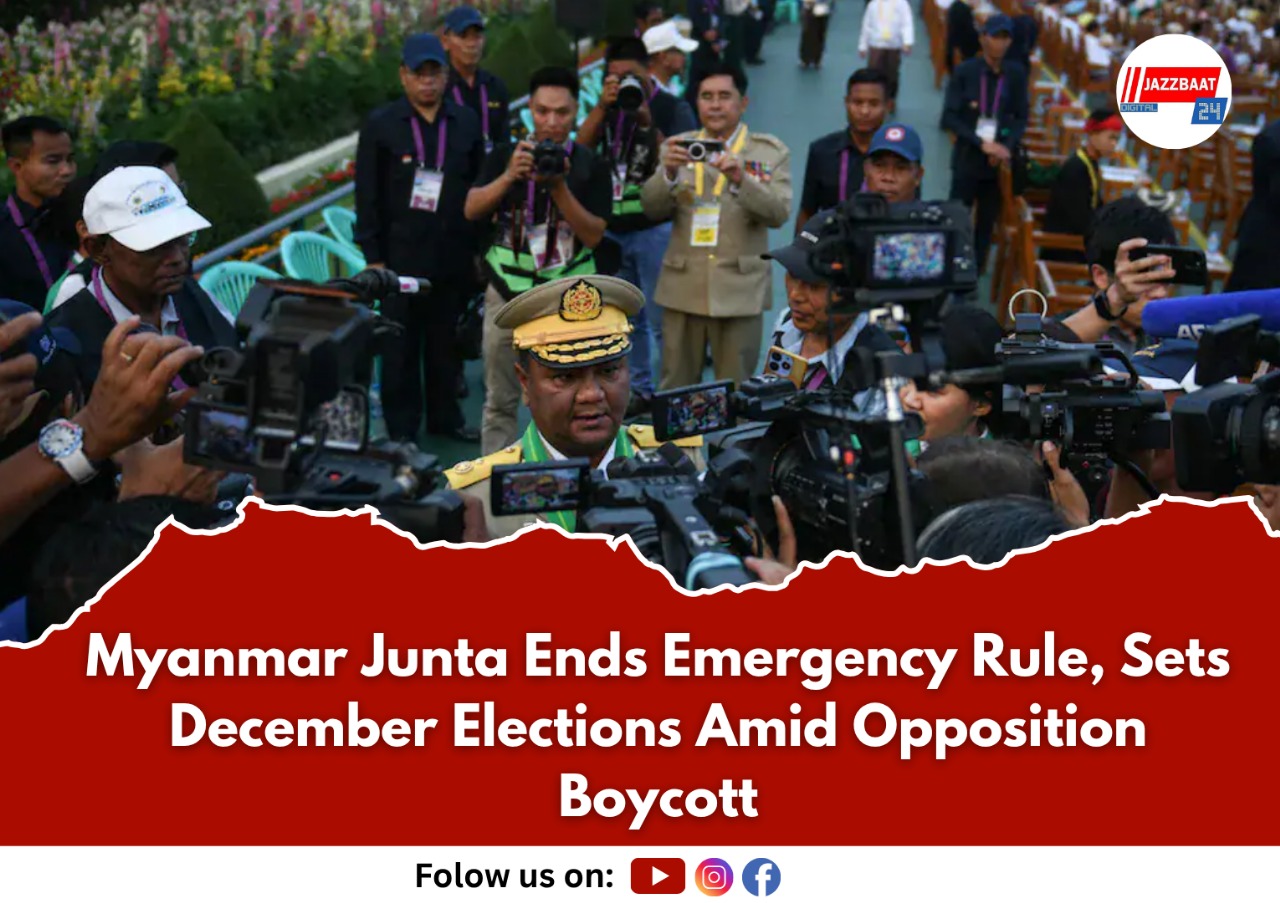
Military government lifts four-year emergency as critics face harsh prison sentences for election opposition
Myanmar's military junta has officially ended the state of emergency that has gripped the country since its coup in February 2021, paving the way for controversial elections scheduled for December. The move comes as the military government faces mounting criticism from opposition groups and international observers who dismiss the upcoming poll as a sham designed to legitimize military rule.
Junta chief Senior General Min Aung Hlaing announced the end of emergency rule on Thursday, declaring that the country would move toward "multiparty democracy" through the electoral process. "We have already passed the first chapter. Now, we are starting the second chapter," Min Aung Hlaing told members of the administration council in what state media described as an "honorary ceremony."
The military leader, who seized power by deposing the civilian government of Nobel laureate Aung San Suu Kyi, will retain control as interim president while overseeing the electoral process through an 11-member commission. Political analysts predict he will consolidate his position either as president or armed forces chief following the elections, effectively extending his grip on
In a clear signal of the junta's intolerance for dissent, Myanmar's military government has enacted stringent laws targeting anyone who opposes the electoral process. The "Law on the Protection of Multiparty Democratic Elections from Obstruction, Disruption and Destruction" prescribes prison sentences of three to seven years for individuals who engage in speech, protests, or distribute materials aimed at disrupting elections.
Group offenses carry even harsher penalties, with sentences ranging from five to 10 years. The legislation also criminalizes damage to ballot papers and polling stations, with a maximum punishment of 20 years imprisonment. Most severely, anyone involved in killing during election disruption attempts faces the death penalty.
Opposition groups, including democratic lawmakers ousted during the 2021 coup, have unanimously declared their intention to boycott the elections. Their stance has been reinforced by international criticism, with UN Special Rapporteur Tom Andrews condemning the poll as "a fraud" last month.
"The junta is trying to create this mirage of an election exercise that will create a legitimate civilian government," Andrews stated, calling on the international community to reject the election plan entirely.
The military government faces significant obstacles in conducting nationwide elections. A census conducted last year in preparation for the poll failed to collect data from an estimated 19 million of Myanmar's 51 million citizens, citing "significant security constraints" as a primary factor.
Large swathes of the country remain beyond junta control, with various ethnic armed groups and anti-coup guerrillas continuing their resistance. Political analysts predict these groups may intensify offensives during the election period as a demonstration of their opposition to military rule.
The civil war that erupted following the 2021 coup has claimed thousands of lives and displaced millions, creating a humanitarian crisis that shows no signs of abating. Despite the junta's recent offer of cash rewards for rebels willing to surrender, armed resistance continues across multiple fronts.
As Myanmar prepares for its first nationwide vote since the military takeover, the international community watches with skepticism, viewing the elections not as a step toward democracy but as an attempt to provide a veneer of legitimacy to continued military rule.